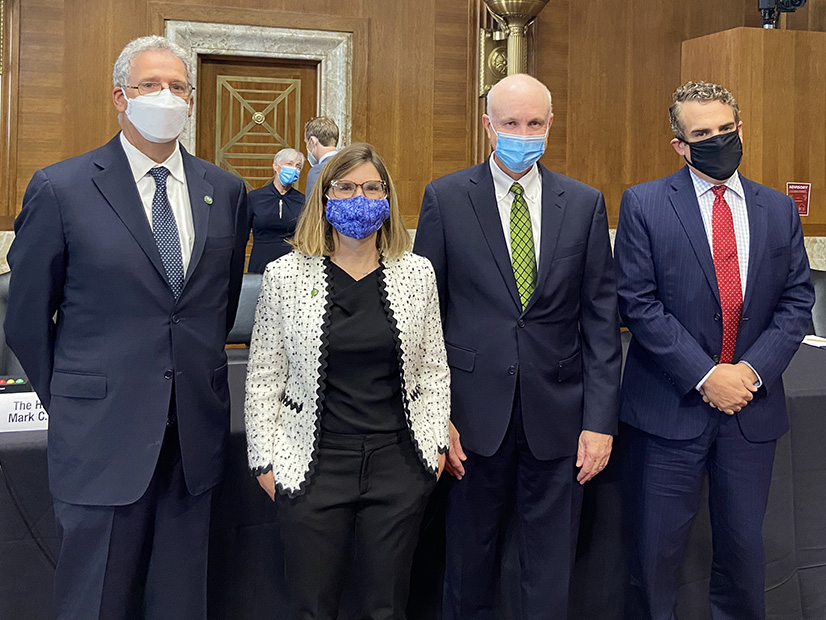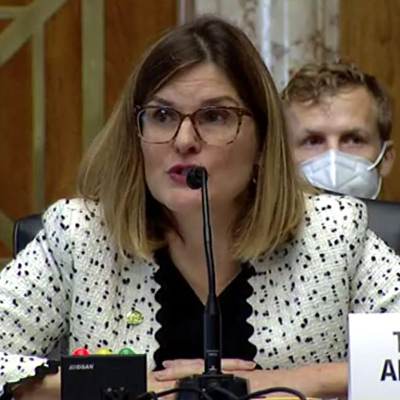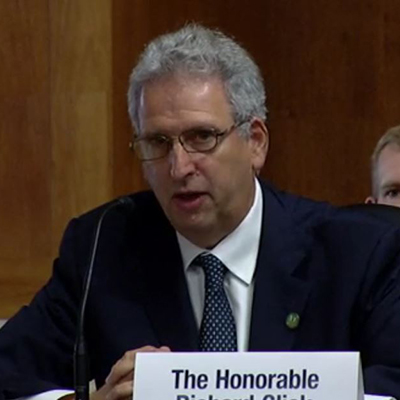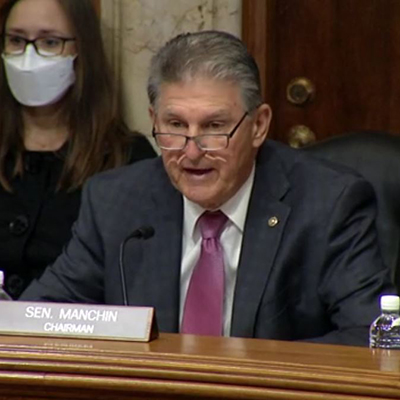
The Senate Energy and Natural Resources Committee gathered all four FERC commissioners to its hearing room in D.C. on Tuesday, ostensibly to discuss the “administration of laws within FERC’s jurisdiction.”

The ENR hearing was held at the same time Defense Secretary Lloyd Austin and Gen. Mark A. Milley testified before the Senate Armed Services Committee about the U.S. withdrawal from Afghanistan, which seemed to take at least some Democratic attention away from the FERC panel. At one point, it appeared there were no Democrats in the room, as ranking member John Barrasso (R-Wyo.) briefly conducted the hearing, and three Republicans spoke in a row. That meant that, as a Democrat and not the chair, Commissioner Allison Clements was sidelined for most of the hearing.
Still, the event produced some insights into both the individual thinking of the commissioners and the philosophical conflicts between them.

Sen. James Lankford (R-Okla.) asked how the commission interprets the National Environmental Policy Act (NEPA) in determining whether to conduct an environmental assessment (EA) of a project or the more detailed environmental impact statement (EIS).
FERC Chair Richard Glick said that the D.C. Circuit of Appeals “has admonished the commission on three separate occasions just with regard to our examination of greenhouse gas emissions — [that] we actually didn’t review those emissions; we didn’t review the significance of those emissions — and the court has said all three times, ‘We’re sending this case back to FERC,’ and it causes extra delay” for project developers.

But Commissioner James Danly said he was “concerned that in some, perhaps, misbegotten desire to ensure that our orders are legally durable,” the commission is taking more time than necessary to conduct an EIS, when only an EA is needed. He said that the D.C. Circuit’s remanding of project approvals is because FERC has not properly explained its decisions, violating the Administrative Procedure Act. “I don’t think it’s necessary to go through the process of conducting EISes that come to the same conclusion as the EAs did. We can handle those” issues within the orders on remand themselves, he said.

Danly interjected: “There is a difference between an agency failing to properly do a NEPA review, which would be in the EA or the EIS, and from an Administrative Procedure Act standpoint, to properly explain the decision that it made partially informed by that NEPA document. In almost all of the cases in which FERC was in one way or another remanded, those were not because of failures in the NEPA document; they are failures of reasoning under the Administrative Procedure Act. Basically the court is saying, ‘You did not sufficiently explain the reason why you made this choice.’ … So saying that we can fix that problem of APA violations by having different or more robust NEPA review is simply not the reality of the remands we’ve gotten back from the courts.”
Danly: CEPP Like ‘Dropping an H-bomb’ on RTO Markets
Sen. Barrasso focused his questions to Danly and fellow Republican Commissioner Mark Christie on the CEPP. The House Energy and Commerce Committee earlier this month voted to include the CEPP in the $3.5 trillion spending bill currently on the floor of the House of Representatives.

Barrasso called it “a scheme.”
“It would use an estimated $150 billion of taxpayer dollars to pay off the largest utilities in the country to deploy Democrats’ favorite energy sources,” he said. “At the same time, it will allow those utilities to charge their customers for new transmission lines to service these facilities. To add insult to injury, Democrats do not plan to debate and consider this legislation through regular order.”

“I think it is almost inevitable” Danly said. “I typically don’t think it’s my role to comment on the legislation before Congress, but in this case, I want to be responsive to your question. … The text of the bill, as I read it, seems to create an incentive and penalty structure that would absolutely change and frustrate every subtle expectation we have for these slowly developed, incrementally produced markets of ours, effectively dropping an H-bomb into the middle of them. It will effectively end the markets as being anything other than administrative constructs for the purposes of balancing and dispatch.”
Danly later softened his remarks somewhat, saying that, if passed as written, the consequences of the program would be, “one way or another … profound, are going to be disruptive and at the moment they are basically incalculable. And … I don’t want to make this sound like a plea for mercy, [because] though we have no role in implementing any of what’s in that bill, FERC as a practical matter is going to be the forum in which those disputes are adjudicated.”
For his part, Manchin did not bring up the program in his opening remarks or questions, instead focusing on generic issues of reliability and affordability.



